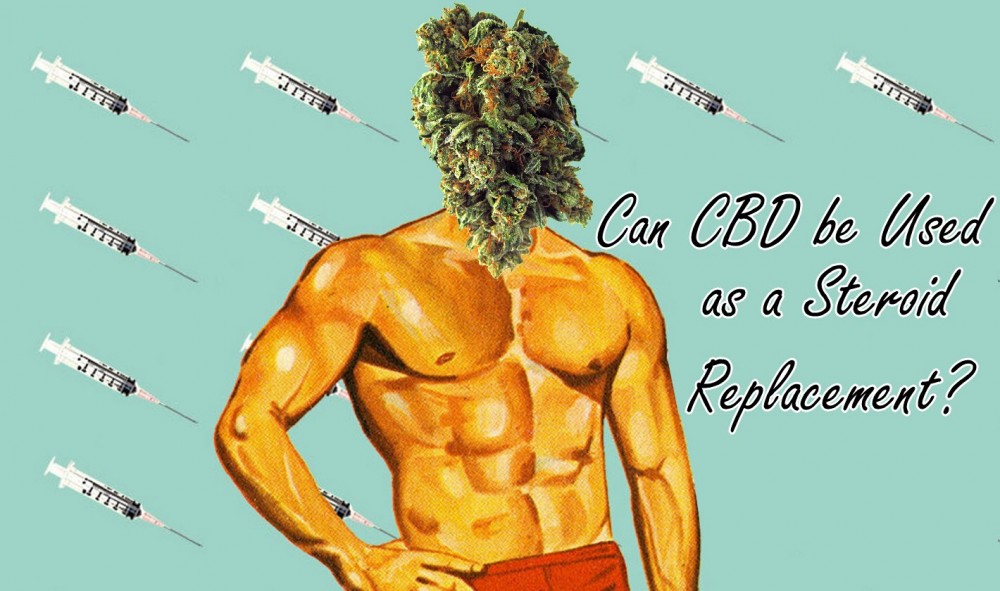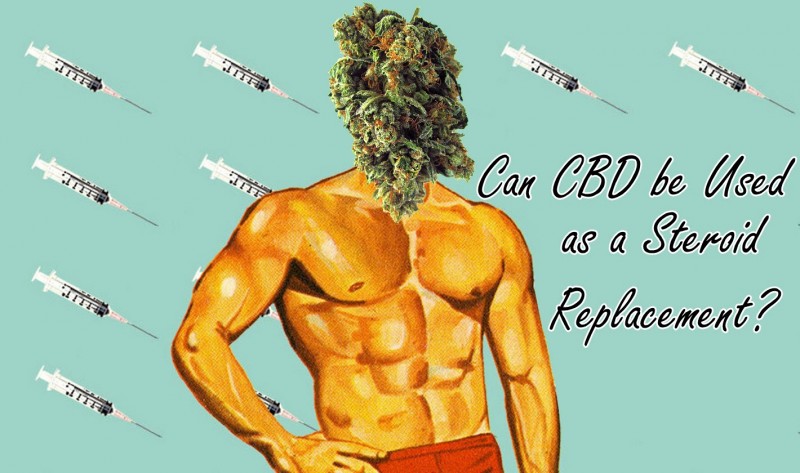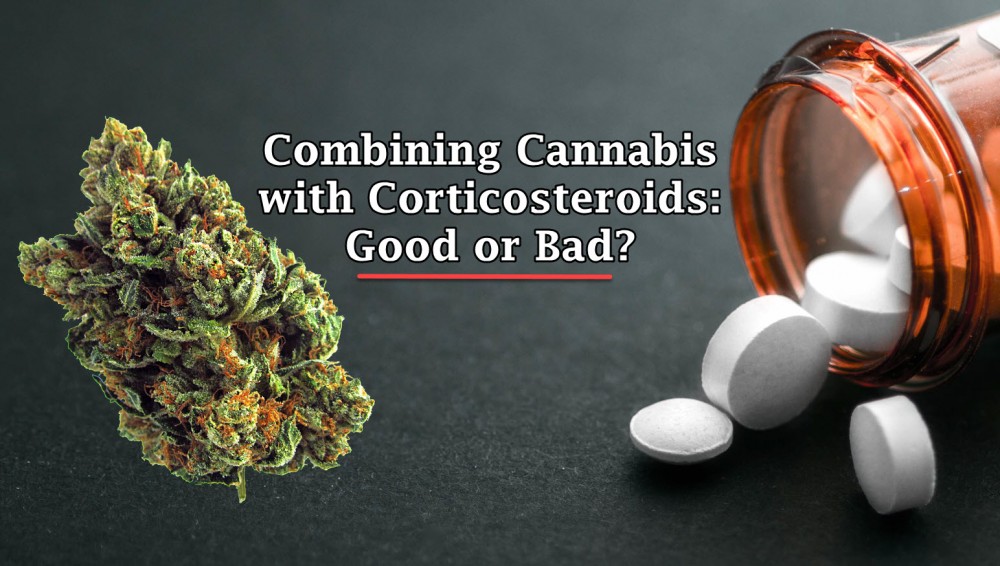Could CBD be used as a steroid replacement?

Most of us have had steroids prescribed to us at least one time or another in our lives, whether it was to treat an allergy, inflammation, or a mysterious rash, the chances you’ve taken at least one type of corticosteroid is pretty high. Since the late 1940s, steroids, particularly corticosteroids, have become a mainstay in the treatment of inflammation. There are three types of commonly used corticosteroids: cortisone, hydrocortisone and prednisone. And while they can be extremely effective in treating inflammation and suppressing the immune system (for those with auto-immune disorders), they also come with a whole range of harmful side effects that aren’t just unpleasant to deal with but can be downright life-threatening, too.
Thankfully, due to advancements in cannabis research, scientists have found that Cannabidiol or CBD can be effective as a steroid sparing or replacing agent. Of course more research still needs to be done on this, but its potential alone signals good things for the medical industry and for patients in general. Should CBD end up replacing steroids in treating a number of diseases and conditions, millions of people who rely on steroids to cope with their diseases will see huge benefits.
In 1948, steroids (corticosteroids) made waves in the field of medicine after they became the main immunosuppressive treatment for patients with systemic inflammatory conditions and in preventing organ rejection after transplants after it was used for rheumatoid arthritis (RA). In fact, its use became so beneficial for patients that the group of doctors responsible for their discovery and application for rheumatoid arthritis treatment, Dr. Philip Hench, Edward Calvin Kendall, and Tadeus Rechstein, were awarded the Nobel Prize for Physiology or Medicine in 1950.
Dr. Hench was the first one to posit that steroids, the hormones produced in the body’s adrenal glands, could help alleviate pain associated with rheumatoid arthritis. As the pharmaceutical industry developed drugs like cortisone, hydrocortisone and prednisone (corticosteroid drugs), new and effective ways of reducing inflammation in the body were discovered. However, the honeymoon period wouldn’t last long and soon, patients started exhibiting side effects from long-term use, including glaucoma, cataracts, fluid retention, high blood pressure, mood swings, weight gain, diabetes, increased risks of infections, osteoporosis, suppressed adrenal gland function, thin skin, and slower wound healing.
Because of this, doctors started only prescribing steroids for short-term solutions, such as treating sudden flare ups in autoimmune conditions like Crohn’s disease or to address pain and inflammation quickly.
There is also the issue of withdrawal. Symptoms of weakness, fatigue, decreased appetite, weight loss, nausea, vomiting, diarrhea, abdominal pain and headaches have been reported by patients who’ve tried to go off these kinds of steroids completely. In addition, long term use of immunosuppressants has been linked to a greater risk of developing cancer in later life.
As a result, researchers started looking into steroid sparing agents, ie. drugs that would allow for a reduction in the amount of steroids being taken or those that could be used as the primary option for suppressing the immune system. Some of these include drugs like cyclophosphamide, chlorambucil, methotrexate, mycophenolate mofetil, azathioprine, cyclosporine, tacrolimus, and sirolimus. However, there’s one caveat: many of them come with their own share of unpleasant side effects.
This is where CBD steps in. CBD’s anti-inflammatory and immunosuppressive properties reduce production of pro-inflammatory cytokines and inhibit T-cell function. Patients with Crohn’s disease and rheumatoid arthritis have reported improvement in symptoms after taking CBD oil. This has led scientists to explore Cannabidiol’s potential as a steroid sparing agent.
In a study conducted by Israeli researchers who wanted to look into CBD’s potential for preventing graft-versus host disease (GVHD) in steroid-resistant patients, nine out of ten subjects responded well to the CBD treatment, with most achieving a ‘complete response’.
The team behind the study maintain that CBD “either enhanced the therapeutic effect of steroids or reduced steroid dosage while maintaining or improving the steroid’s therapeutic effect.” Even better, patients who were resistant to steroid treatment also demonstrated significant improvement during the CBD treatment.
In another, animal model, study, rats with arthritic knee joints demonstrated significant reduction of joint swelling after having transdermal CBD gel applied to them for four days. There were also indications that they experienced less pain.
Thanks to these results, scientists have begun recruiting for phase two of clinical trials for their research into CBD as a steroid sparing agent for Crohn’s disease and autoimmune hepatitis patients. In both trials, patients will gradually shift from their current treatment of steroids or immunosuppressants to a treatment of 300mg of synthetic CBD daily.
According to Chiropractic Economics, by May 2020, there were 629 clinical studies being carried out to look into CBD’s therapeutic properties, with a number of them delving into its potential as a steroid replacement.
With all this new information and new studies still currently being carried out, new applications of CBD as a steroid-sparing agent look like they may be on the horizon.
MARIJUANA AND STEROIDS, READ MORE...
CANNABIS AND CORICOSTERIODS, READ THIS FIRST!








